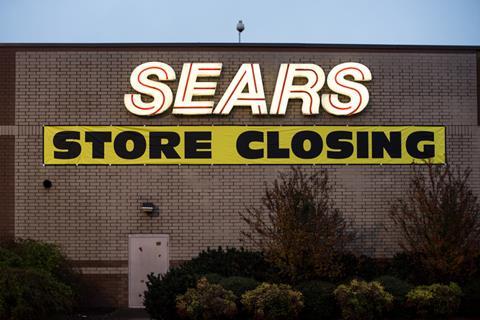Clara Pensions won the DB Innovation Award at last month’s Investment Innovation Summit. CFO Richard Zugic speaks to Pensions Expert about the company’s progress and its pipeline.
When Clara Pensions announced its first transaction with the Sears Retail Pension Scheme in November, it marked the culmination of years of work.
The commercial consolidator for defined benefit (DB) schemes first unveiled its offering in 2018. It has been working ever since to build its proposition while also lobbying government and the Pensions Regulator (TPR) for a regulatory framework to allow transactions to take place.
Richard Zugic, Clara’s chief financial officer, joined the company in June last year when negotiations with the trustees of the Sears scheme were already well under way.
“Things really seemed to take off shortly after I joined [in 2023], with the Department for Work and Pensions’ response to its 2018 consultation, which landed a few days after I started,” he tells Pensions Expert.
“Then TPR revisited and updated its guidance, which was instrumental in validating and supporting the Clara model and ensuring that we had a robust platform within which to work.
“It’s no coincidence that, very soon after the TPR updated guidance came out in August 2023, we were exclusively working with the Sears trustees, which resulted in the £600m transaction in November last year.”
How they did it

Pricing was an important element of that inaugural transaction. As Zugic explains, the initial pricing point “didn’t quite work” for the trustees when discussions began, but Clara continued to meet regularly with the board to update pricing and other information.
By May 2023 the price of the transaction was “getting close” to the right point for Sears, and more detailed discussions began.
“It was a really important proof of concept to deliver that first deal,” Zugic says. “We were delighted to have done it in a matter of six weeks from exclusivity to signing the bulk transfer agreements.
“It demonstrated that Clara could deliver transactions at pace. Obviously, not all trustees need to work at the same pace, but we work with them at a pace that works for them.”
The six-week period incorporated detailed due diligence from both parties, data cleansing and analysis, a 30-day member communication process, and the final signing of a bulk transfer agreement. This transferred all the scheme’s assets and liabilities into a ring-fenced section of the Clara Pension Trust.
The transfer was completed on 28 November ready for payroll on 1 December. Clara has also taken on the task of completing the equalisation of guaranteed minimum pensions, a process that was partly completed before the transaction.
The Debenhams deal

The Clara team did not spend much time celebrating the first transaction as they were already in conversation with the trustees of the Debenhams Retirement Scheme.
The Debenhams scheme had been in the Pension Protection Fund’s (PPF) assessment process since 2019, with members’ benefits reduced in line with the lifeboat fund’s rules.
Clara began discussions with the Debenhams trustees in the second quarter of 2023 – but were not the only option on the table.
Zugic explains: “The Debenhams trustees had an interesting choice to make. They could approach – and they did – insurers to discuss the option of buyout, but what they found was that if they went to buyout in the insurance market they would have to cut the members’ benefits. They couldn’t afford buyout with full benefits.
“The alternative was to come to Clara, where we could provide full benefits. That reflects a differential in pricing between the superfund regime and the insurance market.”
Not only was Clara able to restore members’ benefits in full but, thanks to its capital backers, it was also able to pay back pensioners for the payments they had missed since 2019.
“We completed the transfer on 16 April 2024, and the first payroll was 1 May,” the CFO says “That was an exceptional payroll. Our usual payroll is about £1.5m a month, but this time we paid out £5.5m, reflecting about £4m in back payments – with interest – for members who have been receiving less than their full entitlement.”
Feedback from members – perhaps unsurprisingly – has been “phenomenal”, Zugic adds.
The PPF as consolidator?
Getting the second transaction over the line soon after the first was important, the CFO says, to “embed the Clara concept in the minds of consultants, advisers and trustees”.
“That’s generated an awful lot of interest, and off the back of that our opportunity pipeline has grown significantly over the course of this year,” he adds. Clara is now in active discussions with 20 schemes with combined assets of more than £10bn.
By the end of 2025, Zugic says the company is “pretty confident” of reaching £5bn in pension assets under management. Clara aims to hit £10bn “within another couple of years”.
One potential competitor in the consolidation space is the PPF, after the government announced plans to allow the lifeboat fund to assist in consolidating small DB schemes.
The proposal has received mixed reviews, and Zugic warns that its success will be down to how well it is implemented.
“The devil is in the detail, to be honest,” he says. “The consultation set out some principles and some aspirations. Depending on how it is implemented, there could be consequences for the commercial consolidation market.
“I hope that it doesn’t have a bad impact, because commercial consolidation has been a success story for UK financial services. It took a little while to get up and running, but now we have capital backing to write a substantial volume of business to secure and enhance the security of members’ benefits, while also bringing new capital into the economy.”
Clara’s investor backers have contributed £65m in capital so far to support the first two deals – money that “wouldn’t otherwise have been there without Clara, so these innovations are important”, Zugic says.
He adds that it is important that any public sector consolidator is formed in a way that does not undermine commercial consolidation and “ensures a level playing field, both from a capital perspective and a regulatory perspective”.

























